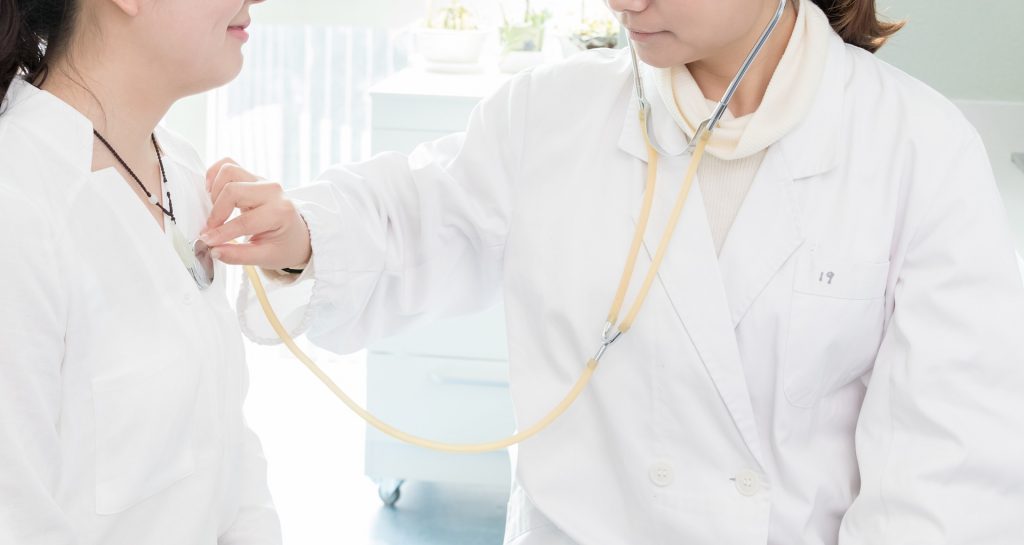Millions of women across the globe annually go to a healthcare professional for women’s services. If you are a woman, you must have a healthcare professional specifically for your reproductive health. Even if you are a healthy individual without any healthcare problems, you still need to get your women’s gynecology health checkup.
Female Conditions
Besides the fact that you get your annual cervical checkup, there are so many different problems that women suffer from. Here are examples of issues women seek out a professional for assistance.
Endometriosis
Endometriosis is a common condition that can be extremely painful, and it also can prevent a woman from becoming pregnant. This is a condition where tissue that is usually present in the lining of the uterus begins to grow in other areas of the pelvis. This is a condition that can be life-altering because it can cause infertility and other issues. A pelvic examination and occasionally a pelvic ultrasound can determine whether or not you have this condition. It is recommended that a yearly checkup is completed. This is so that in the event this might be a symptom you could be suffering from – endometriosis can be properly treated.
Fibroids
Fibroids are another condition that women will experience. At least 70% of women will at one point in their life have a fibroid. These are a non-cancerous growth of the muscle that will form in the uterus. There are a few symptoms that are good indicators that you may have a fibroid. Abnormal bleeding is one of the most apparent symptoms. This type of bleeding can be hard on your health, because you may end up suffering from low iron levels. Fatigue and blood clots are also other symptoms. You also may feel pressure or the urgency to urinate. Fibroids can get very large, which means pain is also going to be another symptom. Also, fibroids can cause infertility.
Pregnancy

Pregnancy is also another reason why women’s healthcare professional is essential. The minute a woman finds out that they are pregnant – a gynecologist/obstetrician needs to be seen. Any pregnancy must be monitored carefully by a doctor. If you are a high-risk pregnancy, you want to be sure that you not only have the right doctor(s), but you have 24-hour care should you need to be monitored. This is especially important if you are a female in your late 30s expecting a baby.
Infertility
Treatment for infertility issues is another reason why it is essential to find a healthcare organization with fertility experience. Still, you want to be able to get the right testing done to find answers to why you may be having issues getting pregnant. There are a few different conditions that will make a female have infertility problems, but that is why it is wise to find the right gynecologist to do the proper testing.
Miscarriages
Miscarriages are another reason why it is essential to see a doctor the minute you learn you are pregnant. Up to 50% of pregnancies end up any miscarriage. As you get older, your risk for miscarrying increases. It is vital to seek out a medical professional immediately so that you can find out if you need to be on bed rest or if you can maintain your normal routine. This is extremely important for women that are over 40 expecting a baby. The risk of a miscarriage after 40 drastically increases, therefore you must have the right team of obstetricians on your side. Also, different conditions can increase the risk of a miscarriage, such as smoking cigarettes or excessive drinking. To get pregnant safely, you should always be sure that you can pass a standard physical before you decide to get pregnant, especially if you are over 30 years old. You want to carry a baby to full term safely.
Checkup’s

If you are getting ready to have a checkup at your gynecologist, you always want to be sure that you get your annual PAP or cervical screening is done while you are not on your menstrual cycle. You also want to abstain from sexual activity at least 24 hours before any testing.
Keep in mind – for some women, this type of healthcare visit can be stressful. Make a list of if you have terrible anxiety or you know you will forget to ask questions during the exam. Your doctor will be able to answer all of your questions. Always be upfront and honest with your doctor about your sexual activity. You also want to mention if you have abnormal periods, spotting, pain during sex, and even pelvic pain that seems excessive. You may need to have additional testing, or you may need to have an ultrasound to rule out any other issues that you may have. If you are a new patient, but you would like to be examined by a female doctor – that is always something that you can bring up.
Conclusion
A gynecologist is going to be a person that will be able to treat you from the time you are first experiencing your menstrual cycle to menopause. It is vital to make sure that you have a good rapport with your gynecologist so that you can speak freely about any conditions that you may be experiencing with your reproductive organs. It can be a smooth transition from your menstrual cycle years into peri-menopause, then the final stage of menopause. Your gynecologist can make sure that you are correctly treated for any symptom that you may be experiencing. They can also give you the support you need so that you can live a quality life without having to suffer from a condition that could have been easily treated. Also, your gynecologist/obstetrician will be the person that helps you during your pregnancy and after by making sure that you give birth to a healthy baby.
Featured Image by Tim Kraaijvanger from Pixabay
